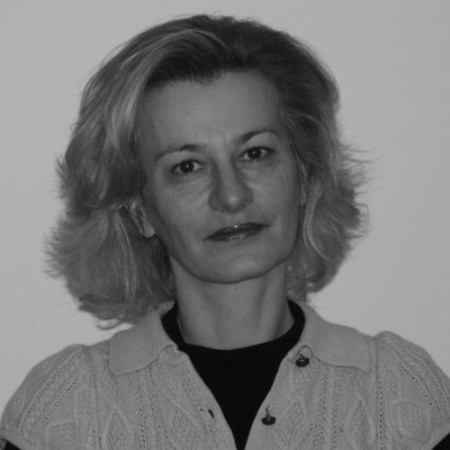Role of Geospatial Technologies
This webinar is in collaboration with and hosted by OneAquaHealth*
Urban aquatic ecosystems are extremely relevant connectors between people, animals and plants, making cities more biodiverse and sustainable. Yet, these ecosystems are often confronted with lack of space, cuts of vegetation, artificialization, and other urbanisation processes. This degradation can lead to numerous disservices to humans in regard to emerging pathogens, decreasing disease resistance, climate change impacts and other health concerns in cities.
This Webinar brings together two global experts on the topic of the convergence of aqautic health and human health.
OneAquaHealth aims to improve the sustainability and integrity of freshwater ecosystems in urban environments. By investigating the interconnection of ecosystem health and human wellbeing, the project will identify early warning indicators and enhance environmental monitoring with AI-assisted tools. As a result, the project will support decision-makers in finding adequate and timely decisions as well as effective measures to restore aquatic ecosystems health and promote OneHealth.
Objectives of OneAquaHealth are:
- LINKS between the HEALTH OF NATURE and AQUATIC ECOSYSTEMS and HUMAN HEALTH.
- LEVEL OF INTEGRITY of urban aquatic ecosystems for the maintenance of HUMAN HEALTH and wellbeing, ANIMAL and PLANT HEALTH and the MITIGATION of the RISKS OF DISEASES outbreak.
- Determine ENVIRONMENTAL PARAMETERS for predicting DISEASES OUTBREAK RISKS related to aquatic ecosystem degradation, which may constitute EARLY WARNING INDICATORS.
- EARTH OBSERVATION DATA to monitoring early warning indicators.
- TOOL that allows the selection of measures to ACT UPON EARLY WARNINGS.
- Engage stakeholders for RISKS CONTRIBUTING to an EARLY WARNING SYSTEM.
Date and Time
Location
Hosts
Registration
-
 Add Event to Calendar
Add Event to Calendar
Loading virtual attendance info...
- Contact Event Hosts
- Co-sponsored by OneAquaHealth
Speakers
Dr Este Geraghty of Esri
Waters of Change: GIS Solutions for Climate Challenges and Community Health
This presentation explores the critical intersection of water, health, and survival in a complex and changing world. With water as the lifeblood of ecosystems and communities, I’ll explore how shifts in water availability and quality—stemming from various factors, including climate change—impact food security, mental well-being, and the spread of diseases such as Powassan virus, Valley fever, Malaria and others influenced by altered environmental conditions.
Utilizing Geographic Information Systems (GIS), I’ll highlight innovative approaches to mapping and solving water-related challenges. From enhancing water access in Africa to addressing the needs of the Navajo Nation and combating harmful algal blooms, GIS technology emerges as a key tool in understanding and improving the complex relationships between water resources, public health, and ecosystem integrity.
Applying GIS with One Health principles can lead to more resilient communities and ecosystems that are prepared to thrive amid the challenges of the 21st century.
Biography:
Dr. Este Geraghty, MD, MS, MPH, CPH, GISP, is the Chief Medical Officer at Esri where she leads strategy and messaging for the Health and Human Services sector. During her time at Esri, Dr. Geraghty has helped organizations around the world use location intelligence to combat Zika virus, finish the fight against polio, grapple with the opioid crisis, combat homelessness, enhance health preparedness and response, inform strategic planning, optimize healthcare access, and traverse the COVID-19 pandemic while tackling inequity. She is passionate about helping health organizations harness The Science of WhereTM to unlock data’s full potential across the sector. She strongly believes that a geographic approach to problem solving can provide new insights, inform decision-making, and improve resource allocation.
Formerly the Deputy Director of the Center for Health Statistics and Informatics with the California Department of Public Health, Dr. Geraghty led the state vital records and public health informatics programs. There she engaged in statewide initiatives in meaningful use, health information exchange, open data, and interoperability. While serving as an Associate Professor of Clinical Internal Medicine at the University of California at Davis she conducted research on geographic approaches to influencing health policy and advancing community development programs. In addition to her degrees in Medicine, Medical Informatics and Public Health, Dr. Geraghty is also a board-certified public health professional (CPH) and a Geographic Information Systems Professional (GISP). In 2020, Dr. Geraghty was featured in the Emmy Award winning documentary, “Geospatial Revolution: Mapping the Pandemic.” In 2021, she was named by HIMSS as one of the most influential women in Health IT. And in 2022, she was listed as one of the Top 50 Women Leaders in Medicine by Women We Admire.
Prof Eleni Kokinou of Hellenic Mediterranean University
The role of geospatial technologies in OneAquaHealth
Lining up Earth Observation with Stream Health and Agricultural Activity: Findings from Heraklion in Central Crete (Greece, Eastern Mediterranean) the overall health of streams, including their surrounding urban or agricultural areas, is inextricably linked to general ecological balance and public health (physical and mental well-being).
This study aims to contribute to the monitoring of rural or suburban areas adjacent to streams. Specifically, low-cost, and rapid earth observation techniques were used to a) obtain a rapid assessment of stream soil and water patterns, and b) create a quantitative database of selected parameters for the study area that can be used for future comparisons, and c) identify soil variability zones in agricultural fields adjacent to streams and determine soil zones that will enable the rational use of inputs (water, fertilizer, and pesticides).
Biography:
1. Professor of Environmental Geology and Geotechnology @ Hellenic Mediterranean University
2. Affiliated Researcher, Institute of Computer Science, FORTH
-
Deep crustal studies
-
Geological and Environmental Studies
-
Data Processing and Intepretation- Geomodelling
-
Algorithm Development-Application in Geo-Signal
-
Near Coast and Coastline Vulnerability- Geomorphology of Sea bottom
Agenda
| 06:00 - 06:05 am PST | Introduction to the webinar and expected results | Alexander Nikolov SYNYO GmbH, Austria |
| 06:05 - 06: 15 am PST | OneAquaHealth project, introduction, objectives, current restults and planned development activities and solutions | Alexander Nikolov SYNYO GmbH, Austria |
| 06:15 - 06:45 am PST (including 10 min for Q&A) |
ESRI Expert talk: Waters of Change: GIS Solutions for Climate Challenges and Community Health This presentation explores the critical intersection of water, health, and survival in a complex and changing world. With water as the lifeblood of ecosystems and communities, I’ll explore how shifts in water availability and quality—stemming from various factors, including climate change—impact food security, mental well-being, and the spread of diseases such as Powassan virus, Valley fever, Malaria and others influenced by altered environmental conditions. Utilizing Geographic Information Systems (GIS), I’ll highlight innovative approaches to mapping and solving water-related challenges. From enhancing water access in Africa to addressing the needs of the Navajo Nation and combating harmful algal blooms, GIS technology emerges as a key tool in understanding and improving the complex relationships between water resources, public health, and ecosystem integrity. Applying GIS with One Health principles can lead to more resilient communities and ecosystems that are prepared to thrive amid the challenges of the 21st century. |
Dr Este Geraghty, Chief Medical Officer @ Esri |
| 06:45 - 07:00 am PST | The role of geospatial technologies in OneAquaHealth Lining up Earth Observation with Stream Health and Agricultural Activity: Findings from Heraklion in Central Crete (Greece, Eastern Mediterranean) the overall health of streams, including their surrounding urban or agricultural areas, is inextricably linked to general ecological balance and public health (physical and mental well-being). This study aims to contribute to the monitoring of rural or suburban areas adjacent to streams. Specifically, low-cost, and rapid earth observation techniques were used to a) obtain a rapid assessment of stream soil and water patterns, and b) create a quantitative database of selected parameters for the study area that can be used for future comparisons, and c) identify soil variability zones in agricultural fields adjacent to streams and determine soil zones that will enable the rational use of inputs (water, fertilizer, and pesticides). |
Prof. Kokinou Eleni, Hellenic Mediterranean University, HL7 |
| 07:00 - 07:25 am PST | OPEN DISCUSSION | ALL |
| 07:25 - 07:30 am PST | Final remarks | Alexander Nikolov SYNYO GmbH, Austria |
*OneAquaHealth is an European Union funded project.



